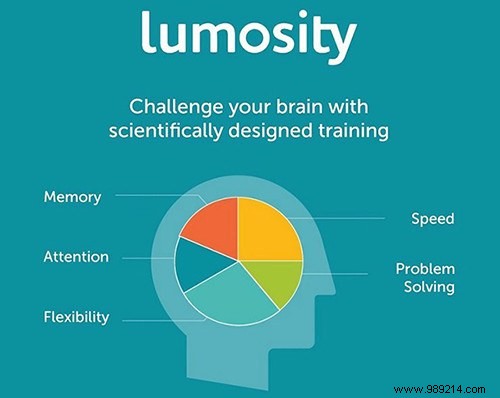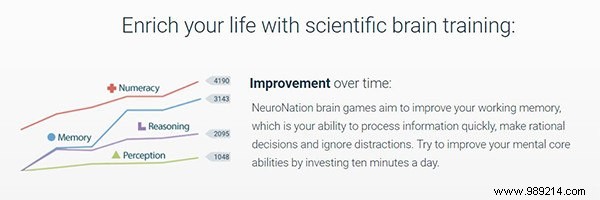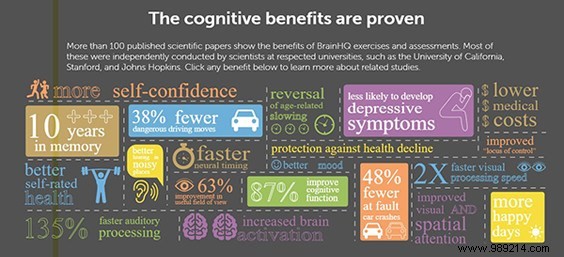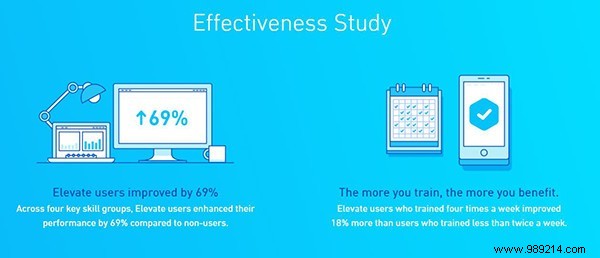If physical exercise makes your body stronger, mental exercise must make your brain stronger, right? In fact, it turns out the brain is a little more complicated than that, and the two billion dollar industry centered around cognitive training programs and apps may not have enough evidence. /P> SummaryClaimsProofPrograms1. Brightness2. NeuroNation3. LearningRx4. BrainHQ5. ElevateHow do I get smart then?
Overall, cognitive benefits of brain training are likely to exist, but they don't necessarily apply outside of the app. People with brain damage may experience some improvements, but playing memory games may not help the average person find their car keys any faster.

Neuroscientists have been interested in these brain training programs ever since they started to become popular, and many of the platforms are actually designed by neuroscientists themselves. The body of research, however, has generally descended on the negative side.
In 2017, a group of neuroscientists tested a group of 128 healthy young adults, comparing the effects of brain-training games to normal video games or no games at all. The brain training group improved in the tasks they performed in the brain training app, but scored the same as the other two groups on other measures of cognitive activity. P>
In 2016, another group of neuroscientists published a review of the relevant evidence and found that even including the studies most frequently cited by proponents of brain training, there was, in most cases, insufficient evidence. measurable benefits. Tasks closely related to brain-training activities tended to improve, but there was little visible evidence of skill transfer to more distant tasks.
There are dozens of other studies in the same vein, all with similar results. Although there are many other studies that support the idea of brain training, and many neuroscientists still endorse certain aspects of the idea, the vast majority of these studies focus on subjects with some form of brain training. dementia, brain damage or other existing cognitive problems. . Many others are unreliable because they were not conducted independently, and some suffer from poor experimental design.
While there are dozens of brain training apps out there, these are some of the most popular, along with what science has to say about them.

It's the most well-known cognitive training app out there, which means it's been pretty well researched. The results match the general pattern — subjects perform much better at closely related tasks, and some of these strength skills transfer, but the effects were generally not large enough for the researchers to be certain.

There are no conclusive studies that specifically test NeuroNation. Their website, meanwhile, while full of claims of partnerships, ongoing research, and scientific support based on past research, provides no guarantees that their specific brand of training will work.

LearningRx is not a smartphone app, but rather an individual brain training program. This company is actually very proactive in commissioning peer-reviewed studies on their product, but many of them come from researchers affiliated with the company. These studies tend to show strongly positive results, but more independent evidence may be needed.

It is one of the most scientifically backed programs – evidence in favor of it has emerged in several studies over the past few years. BrainHQ is unlikely to have major effects on cognition in general, but several high-quality studies have shown at least an effect on processing speed and memory. However, their website may exaggerate the breadth and reliability of their search results a bit.

The only available evidence directly supporting Elevate's program was a study commissioned and partially conducted by the company itself. An independent researcher and a research company were involved, but the study was not peer-reviewed. In the absence of any other solid evidence, chances are the Android/iOS app won't make you a genius.
Good news! You don't need to spend money on brain apps or obsess over the next level of memory gaming. It might keep you a bit sharper, but if all you want to do is make sure your brain gets a decent workout and stays plastic, you should just try to learn something new, keep your body fit health and exercise. If you prefer puzzle games to taking a math class or learning Finnish, that's no problem. All of the brain apps above are mentally stimulating, there's no doubt about it, they're just not magic bullets.